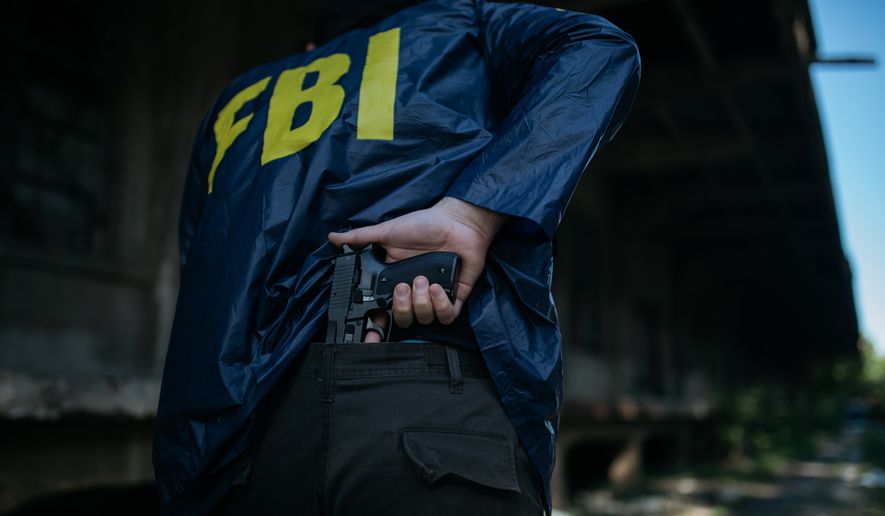FBI operatives conducting undercover investigations have been hampered by poor training and a lack of supervision by unqualified case coordinators, putting agents’ lives and the nation’s security at risk, according to a withering report issued Tuesday by the Justice Department’s watchdog.
Justice Department Inspector General Michael Horowitz said the FBI’s national security undercover operations are so disorganized, the bureau was unable to say with certainty the current number of undercover employees when they last went undercover, or if they would go undercover again. The bureau also didn’t know how many times, if at all, an operation was compromised because of a lack of supervision.
Bureau officials acknowledged they do not analyze or track the utilization of undercover operations, according to the IG’s 46-page report.
The report also found that an undercover agent who arrested a terrorism suspect had that cover blown, resulting in the suspect issuing a murder contract. The report doesn’t say if that was the result of mismanagement.
“Poor tradecraft can lead to important investigations, including national security investigations, being compromised and jeopardize the lives of FBI [undercover employees] and others,” Mr. Horowitz wrote.
Tradecraft is an intelligence community term for the techniques, methods and technology used in undercover operations.
Luis Quesada, assistant director of the FBI’s Criminal Investigation Division, acknowledged the program’s faults but said the bureau has taken steps to resolve the issues.
“We also understand you found several items in areas in which the FBI’s undercover program can be improved. In that regard we concur with your 10 recommendations for the FBI,” Mr. Quesada wrote in a response accompanying the report.
In his report, Mr. Horowitz described the oversight of undercover employees as “minimal,” saying the bureau doesn’t formally track undercover activities. As a result, he wrote, the FBI “had no reliable information” about operatives’ undercover activities.
The FBI’s undercover operations policy designated an official within individual field offices who would be responsible for tracking operatives’ activities. As a result, the involvement of undercover coordinators, who manage undercover operatives, varied greatly across the country, the report found.
Such supervision of undercover activities is so poor, Mr. Horowitz concluded, the FBI didn’t fully track requests made to the attorney general for approval of certain operations. The attorney general’s approval is required for investigations that require the purchase or lease of real estate or the deposit of funds into a bank account.
Mr. Horowitz said tracking undercover activities is critical to ensure the FBI better understands the risks and effectiveness of its investigations. He urged the FBI to implement an electronic management system.
The report also criticized the bureau’s online training of undercover operatives, describing it as “disjointed” with no centralized instructions.
It found that field agents are not required to complete any refresher courses or continuing education requirements to maintain their undercover status.
Operatives who were certified to work undercover 10 years ago are eligible to work operations today without any additional training or refresher courses.
Prior to the report’s release, the FBI updated its training program to have agents who were active for three to five years volunteer for refresher training. The program is expected to become mandatory, the report said.
Mr. Horowitz also raised concerns about the qualifications of undercover coordinators, who manage field operatives. The report found that some coordinators were not certified as undercover agents and had little to no undercover experience.
Some undercover coordinators in the 15 largest field officers met none of the three recommended qualifications for the position, the report said.
Under FBI guidelines adopted in 2003, an undercover coordinator had to be certified as an undercover employee or at least attend a training course. The report said the FBI officials had no explanation for why those requirements were removed from current policy.
“We believe it is important for [undercover coordinators] to have undercover experience due to the sensitivity of the operations and because the program relies upon [undercover coordinators] being in a mentorship and advisory role for [undercover employees] and case agents conducting undercover activities,” the report said. “The [undercover coordinator] is one of the primary individuals responsible for ensuring the activity is feasible and, more importantly, ensures the safety of the undercover employee.”
• Jeff Mordock can be reached at jmordock@washingtontimes.com.




Please read our comment policy before commenting.